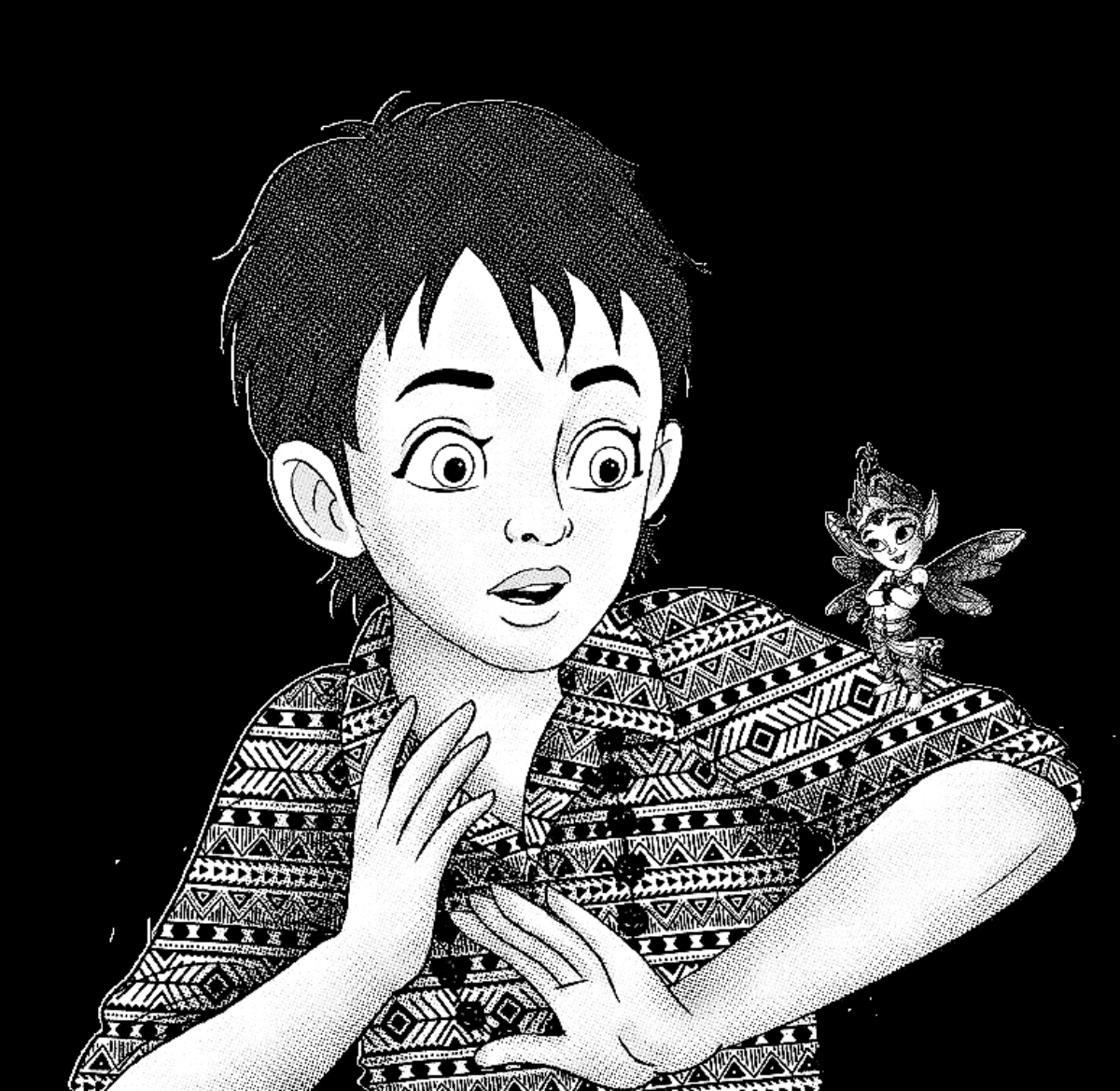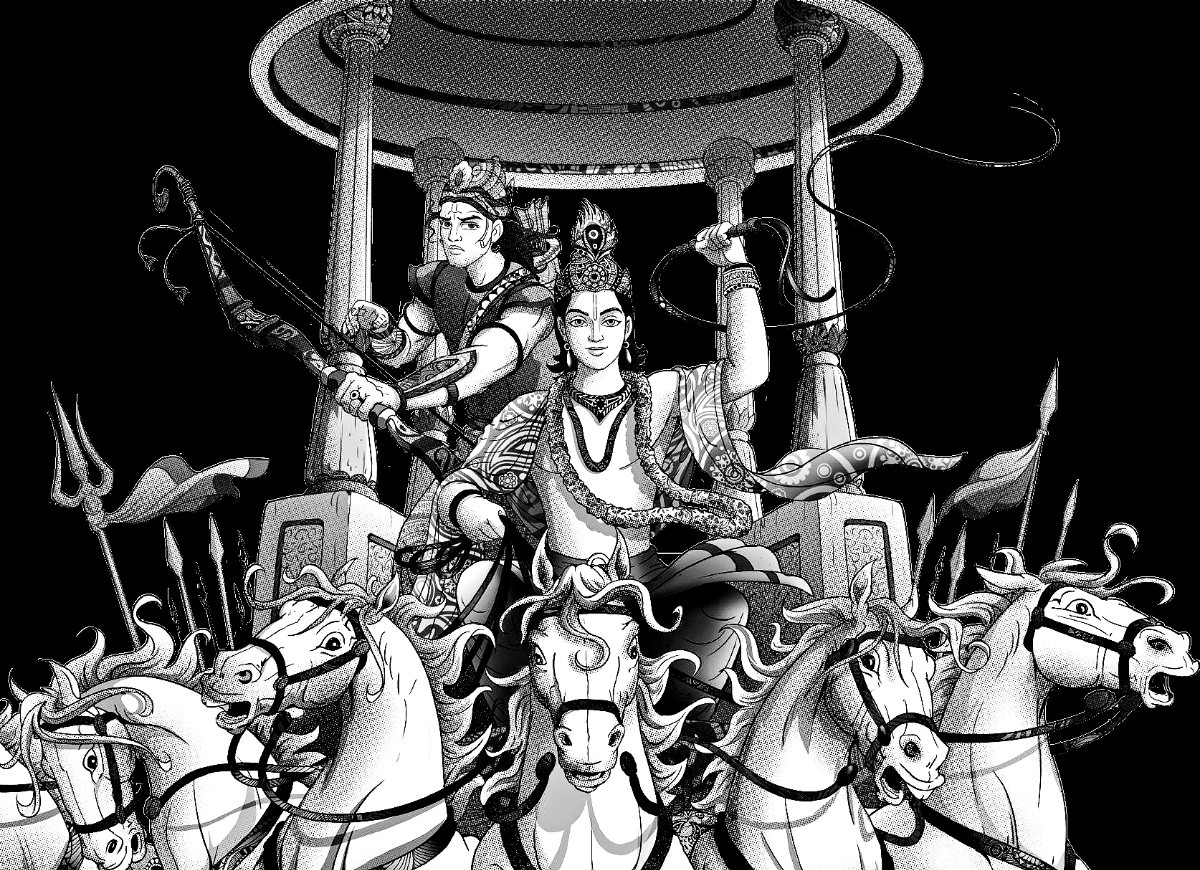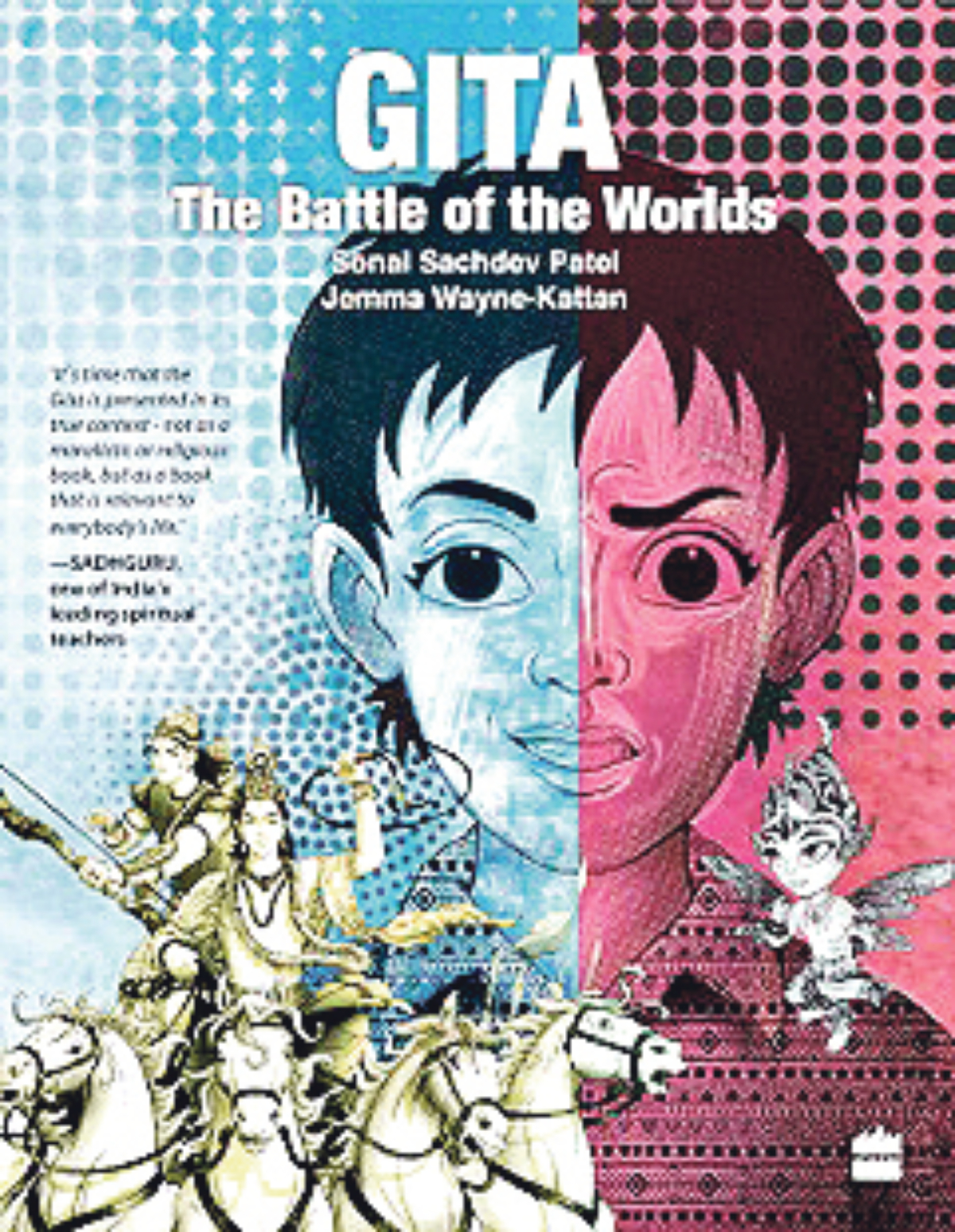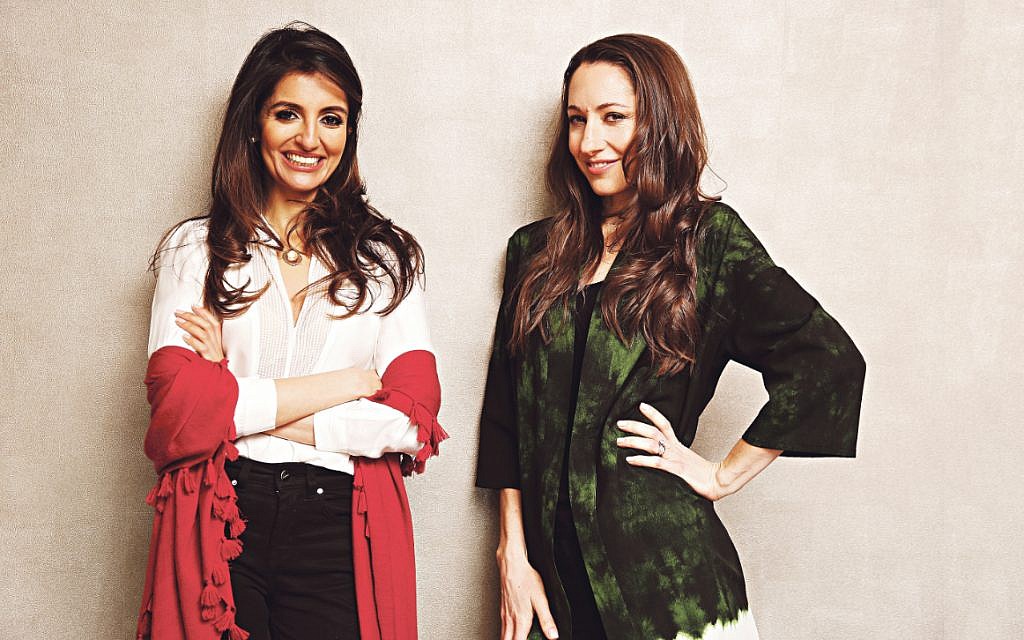A Jewish author reimagines a Hindu text: ‘We’re all trying to be good people’
Jewish author Jemma Wayne-Kattan has helped re-imagine a Hindu text for children – and found plenty of similarity between the two religions
Growing up, Jemma Wayne had many Hindu friends. But little could this Jewish author know that one day she would be called upon to reimagine one of the holiest books in the Hindu religion.
GITA: The Battle of the Worlds, which Wayne wrote under her married surname Wayne-Kattan, along with her long-time friend Sonal Sachdev Patel, is her first children’s book.
The project offered the author and journalist a departure from her previous work, which includes the critically-acclaimed novels, After Before and Chains of Sand, as well as Bare Necessities, a tongue-in-cheek guide to being a grown-up.
Get The Jewish News Daily Edition by email and never miss our top stories Free Sign Up
GITA revolves around the story of an 11-year-old boy named Dev, who is struggling with his emotions after the death of his father.

At the start, Dev’s overriding emotion is anger, and he lashes out at his younger brother. He is consumed by his grief, but meets Sanjay, a sprite-like being who informs him there is a battle raging inside Dev’s own body, between the noble warrior Arjun and the wicked Prince Ego.
Sachdev Patel, the social entrepreneur who came up with the original idea for the book, asked Wayne, 38, to collaborate on it owing to her creative writing background.
As Wayne explains: “Sonal is Hindu and the Gita [its full name is the Bhagavad Gita] has always been a special text for her, but it contains a lot of really difficult concepts. She realised, as she had children, that it’s quite difficult to share those ideas with them. She wanted to create something that made that text accessible to kids.”
The original story of the Gita – which comes from the larger Mahabharata – is about the epic battle between two warriors and their tribes.
One, the noble warrior Arjun, has a moment of hesitation on the battlefield when he recognises that some of his enemies are also his cousins and is reluctant to fight them. At this point, the Hindu deity of Krishna talks to him about a number of things, including that he must do his duty and defeat the enemy.
However, according to the Hindu guru Paramahansa Yogananda, this is not a battle about warring human armies, but a metaphor between good and bad tendencies within ourselves.
Wayne explains: “Sometimes we are reluctant to defeat those bad tendencies, because they are very attractive, and we like to do things that aren’t right, but Yogananda says it is our duty to defeat them, because ultimately they’re not good for our soul and our way of life.”

To be able to fully grasp the themes of the Gita, Wayne studied the text, Yogananda’s interpretation, and read around the subject.
“Before studying the texts, I only knew what I’d learnt at school and from having close friends who are Hindu – you learn about each other’s traditions.
“I think the Hindu and Jewish communities in the UK generally connect very well and there’s a lot of interaction between us.”
While obviously deeply-rooted in Hindu scripture, Wayne, who attends Edgware & Hendon Reform Synagogue, emphasises the universality of the story’s themes.
“What attracted me to the story is that message of the battle between good and bad, wanting to be a good person and trying to make choices to live a good life is such a universal message that transcends all religions.”
The theme of the battle between good and evil shares similarities with the Jewish notion of free will: it is up to each of us to make moral choices.
In terms of her Judaism, the mother-of-two says she loves the Jewish “traditions, the community and that fundamental idea of trying to have an ethos by which we try to be good people”, although she comes from a questioning base.
“I was brought up in a Reform Jewish household, but my dad [the American-born composer Jeff Wayne, who is behind the musical The War of the Worlds] is a self-proclaimed agnostic,” she explains, “so our dinner table was always full of debate, and we challenged things all the time, which
I loved.
“Judaism is an intrinsic part of my identity, but I don’t feel particularly tied to the legalistic side of it. And when people cling to their singular doctrines of this is the only way to act or worship, that’s when we start to exclude and divide, and we forget that we’re all just trying to be good people.”

I ask Wayne what she hopes young readers will take away from GITA.
“To think about those different emotions within themselves, to feel like they have some choice over which ones they choose to enable, and just to take some moments for some internal reflection, to begin that journey.
“I also hope they’ll enjoy the adventure story. It was really important that, as well as it being about these deeper messages, hopefully it was also a good story – because when you’re reading anything, particularly as a child, that’s the most important part.”
- GITA: The Battle of the Worlds by Sonal Sachdev Patel and Jemma Wayne-Kattan is published by HarperCollins, priced £7.99. Available now.

Thank you for helping to make Jewish News the leading source of news and opinion for the UK Jewish community. Today we're asking for your invaluable help to continue putting our community first in everything we do.
For as little as £5 a month you can help sustain the vital work we do in celebrating and standing up for Jewish life in Britain.
Jewish News holds our community together and keeps us connected. Like a synagogue, it’s where people turn to feel part of something bigger. It also proudly shows the rest of Britain the vibrancy and rich culture of modern Jewish life.
You can make a quick and easy one-off or monthly contribution of £5, £10, £20 or any other sum you’re comfortable with.
100% of your donation will help us continue celebrating our community, in all its dynamic diversity...
Engaging
Being a community platform means so much more than producing a newspaper and website. One of our proudest roles is media partnering with our invaluable charities to amplify the outstanding work they do to help us all.
Celebrating
There’s no shortage of oys in the world but Jewish News takes every opportunity to celebrate the joys too, through projects like Night of Heroes, 40 Under 40 and other compelling countdowns that make the community kvell with pride.
Pioneering
In the first collaboration between media outlets from different faiths, Jewish News worked with British Muslim TV and Church Times to produce a list of young activists leading the way on interfaith understanding.
Campaigning
Royal Mail issued a stamp honouring Holocaust hero Sir Nicholas Winton after a Jewish News campaign attracted more than 100,000 backers. Jewish Newsalso produces special editions of the paper highlighting pressing issues including mental health and Holocaust remembrance.
Easy access
In an age when news is readily accessible, Jewish News provides high-quality content free online and offline, removing any financial barriers to connecting people.
Voice of our community to wider society
The Jewish News team regularly appears on TV, radio and on the pages of the national press to comment on stories about the Jewish community. Easy access to the paper on the streets of London also means Jewish News provides an invaluable window into the community for the country at large.
We hope you agree all this is worth preserving.
-
By Brigit Grant
-
By Laurent Vaughan - Senior Associate (Bishop & Sewell Solicitors)
-
By Laurent Vaughan - Senior Associate (Bishop & Sewell Solicitors)
-
By Laurent Vaughan - Senior Associate (Bishop & Sewell Solicitors)
-
By Laurent Vaughan - Senior Associate (Bishop & Sewell Solicitors)






















